The Apprentice in the Sun - Bicycling Bucharest, Bucharest 2006
dvd, 22 min - edition of 10
video clip (excerpt) -- 2: 44 min
From the castle of Ceausescu - the former, fallen (executed) dictator of Romania built himself a phantasy castle which is now called the Parlament Palace - via the "bolshoij prospect / Grand Boulevard" to a gigantic Apartment block at the other side of this axial street and back again towards this idyosyncratic megalo-construction built in the 1980s, I ride the bicycle in the middle of the one way lanes against traffic, against and with the sun without holding the streering wheel.
The outcome of this rather dangerous enterprise (Do I have a death wish? or am I just an ecolo-political romantic/ rule-disobeyer) is a video of 22 minutes made for the Biennial of Bucharest. (2nd edition, though there was never a first edition keeping to the tradition of local surrealisms - yes there have been many, and some just read below: PS2)
The chosen path on the axis of Ceausescu's power translated into urbanism is quite extraordinary in its size and symetry in a city that didn't undergo a Hausmannisation program earlier. It not only comes with this big long and totally streight Avenue - called Bulevardul Unirii -, the delirious kitch palace (it is said to be the second biggest bulding in the world after the Pentagon) that combines domestic architecture with state grandeurism but also an anachronistic housing ring reserved for ministers, administrators and his securitade special police unite. The irony has it, that my host, the Bucharest Biennia,l puts me in such a nice appartment directly opposite the palace, with a stunning view. The apartment belongs today to a real estate firm by the name of RomVision (no, it is real and not internet related) that runs these units as upscale hotels.
PS1: Romania was the birth place of Emil Cioran, an excentric existentialist poet later emigrating to France. As a young man, he was said to have suffered insomnia to the point of immanent death. He started bicycling and safed thus his life. The title Apprentice in the Sun is taken from a famous / not so famous small drawing of Marcel Duchamps showing a bicycle rider. (see my light box:) from 1914.
PS2: Bucharest has a dog problem, a stray dog problem. Ten thousands of stray dogs are in the streets and thousands of people get bitten every year, I was told. This year, a Japanese business man was killed by a stray dog. (see the MSNBC article "Romania to neuter stray dogs after man killed" http://www.msnbc.msn.com/id/11101851/). The article gives you an idea how many dogs are in this city: "Bucharest city hall said it would bring 1,000 foreign medical students to sterilize stray dogs." More poetically, I was told in three words with nice accent that "dogs hate bicycles" - a new insight for me. The Biennial assistant added: "Cars and bicycles enrage dogs." The Bucharest artist Catalin Rulea confirmed this independently: he was attacked several times by dogs while riding the bicycle. The last time, when I had the "pleasure" to live in a city with lots of stray dogs in the streets - Moscow 1996.- I was attacked by 4 dogs, bitten and then subjected to the even more dangerous and cumbersome injections from Russian hospitals over the period of nearly a month (I had to bribe them and made sure they would use new needles) - so my dog -paranoia is a bit justified. (apart from that , dogs don't like me either, they smell my fear)
PS3: To all this, currently, while I'm here in Bucharest, larger parts of the city are under quarantine due to a massive bird flue outbreak. see: "Thousands of people quarantined in Bucharest as Romania battles bird flu" (http://news.yahoo.com/s/afp/20060522/wl_afp/healthfluromania_060522183100) (from this article:" "About 40 streets have been blocked" in the Luica quarter, Inimaroiu said, urging residents to stay calm.") The Harald Ttribune writes of 60.000 people quarantined. ( "A cordon surrounded seven streets, and similar measures were in effect in another neighborhood of the city, affecting about 60,000 people.") Officials from the World Health Organization said they believed it to be the first time that the movements of so many people were restricted because of bird flu. The Romanian authorities said the tough measures were necessary when the virus threatened an urban area, an assertion WHO disputes. http://www.iht.com/articles/2006/05/24/news/romania.php). This disagreement is quite an interestng spin to the countries recent authoritarian history. My friend Barry Schwabsky asks: "Maybe the future will be, not the national security state, but the health security state." I guess it is and has been always the same, thinking about the history of Nazism where many arguments to surpress people had been hygenic, saniitary and security based.
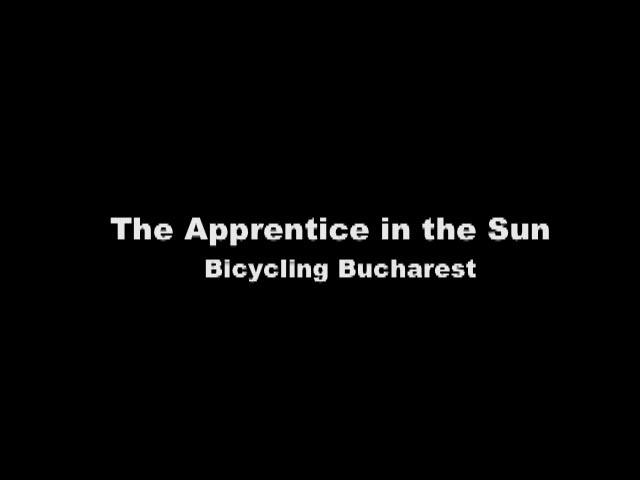
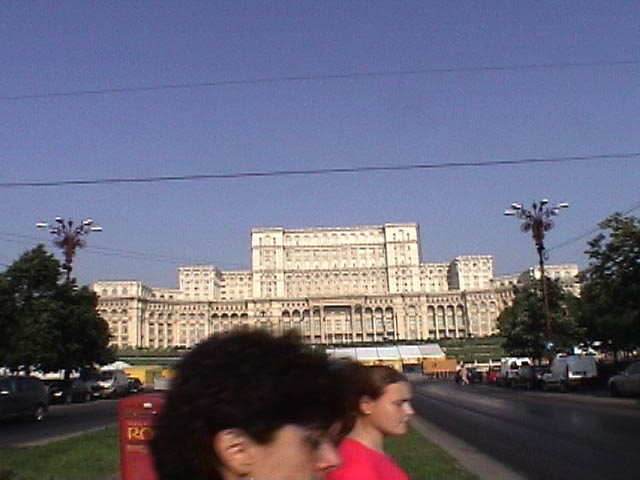
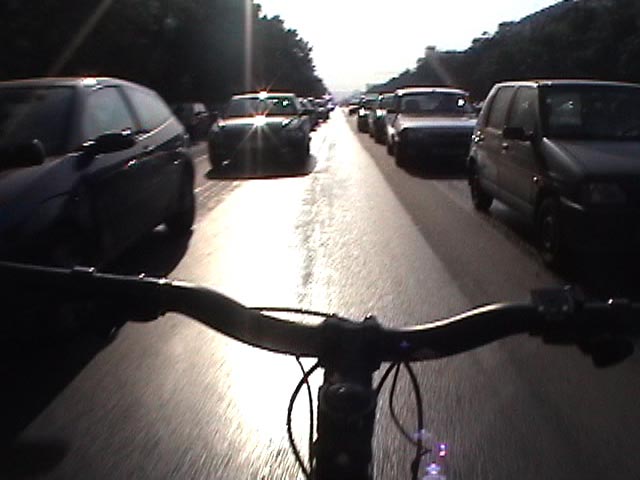
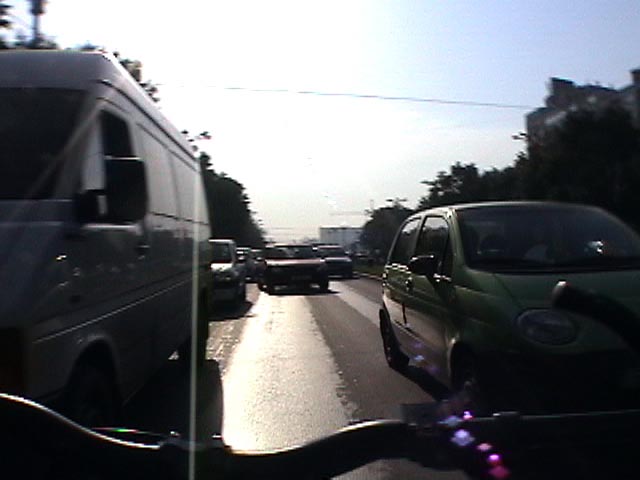
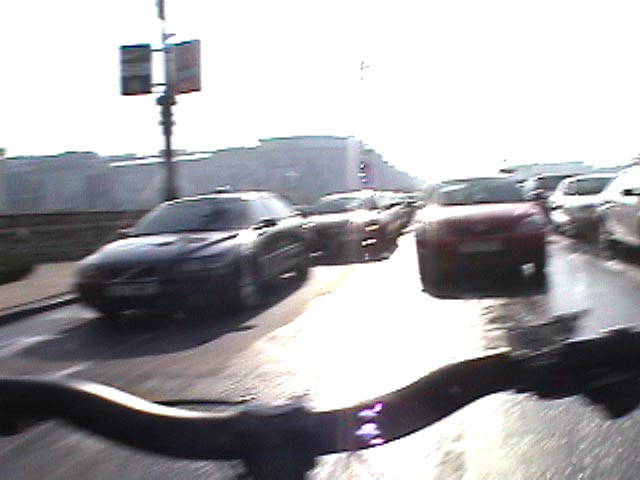
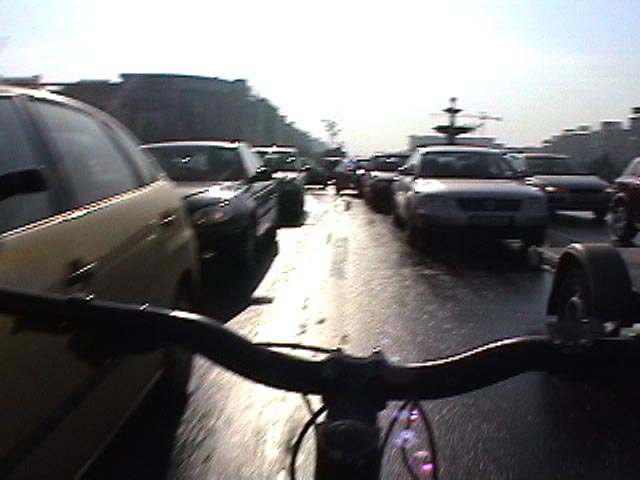
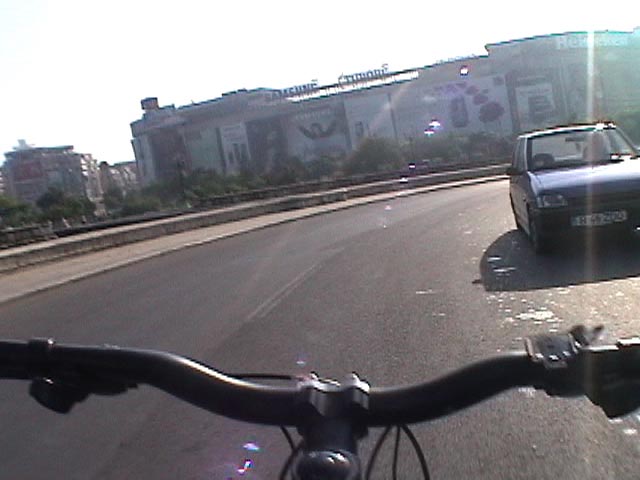
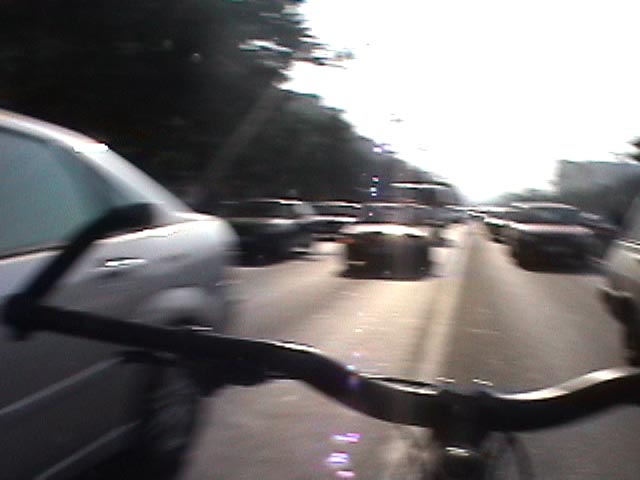
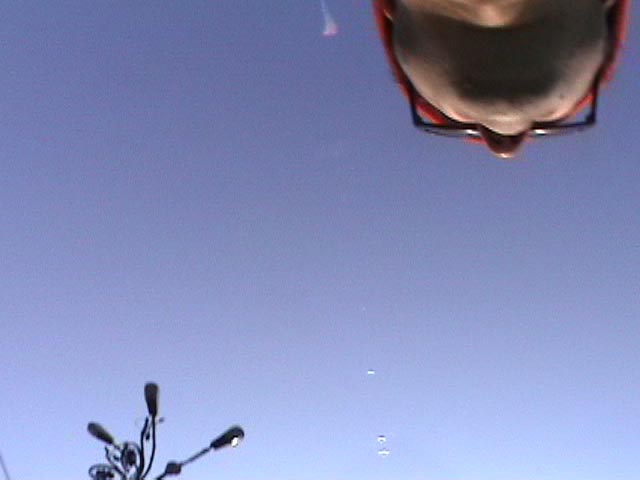
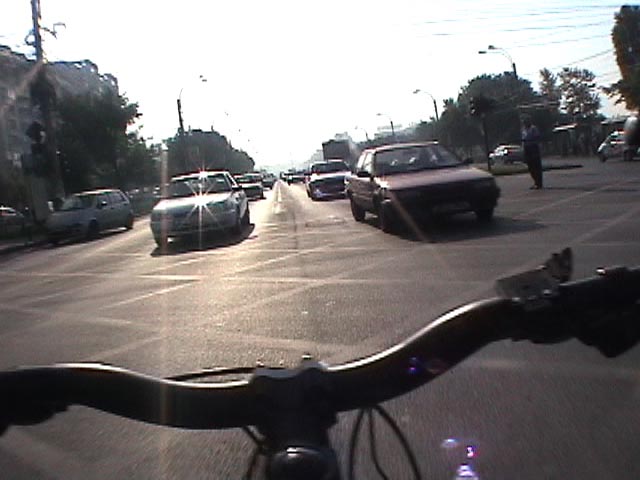
this is a police man who first yealled at me in Romanian.. and hten used his wissel to make me stop
but given this project, I had to ignore him and just continued...
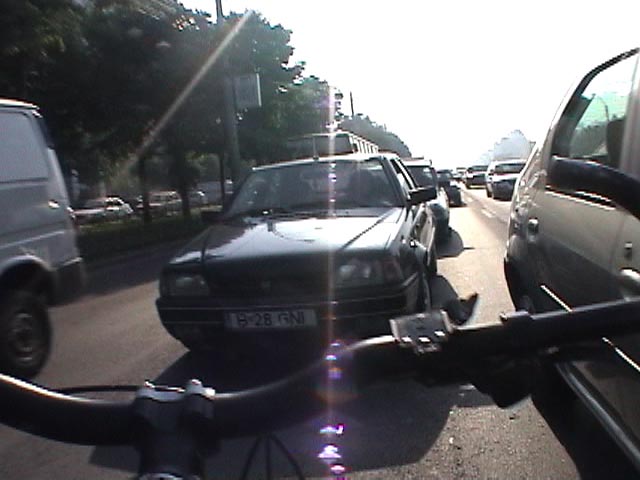
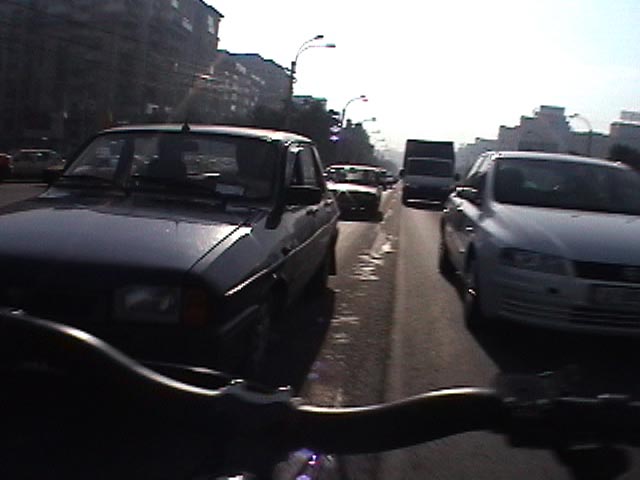
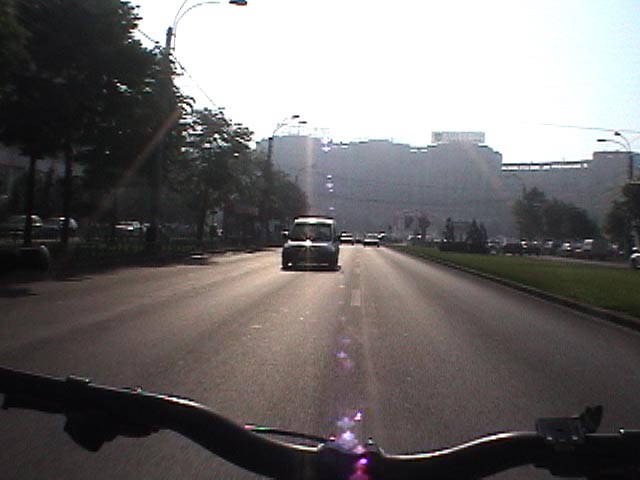
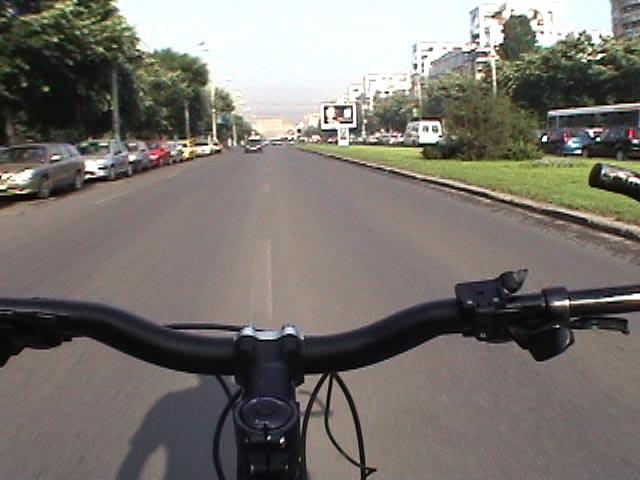
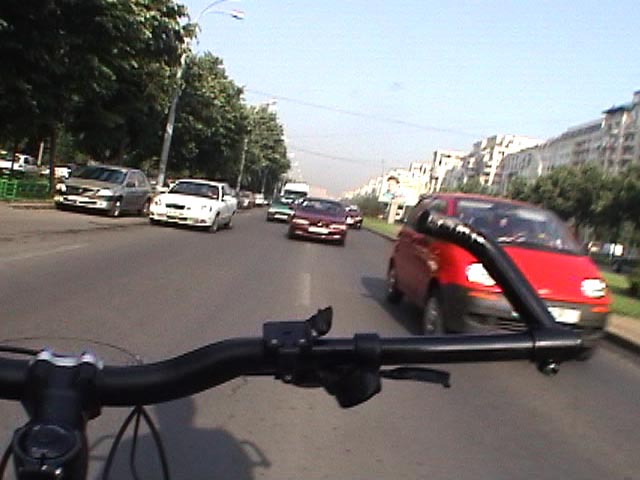
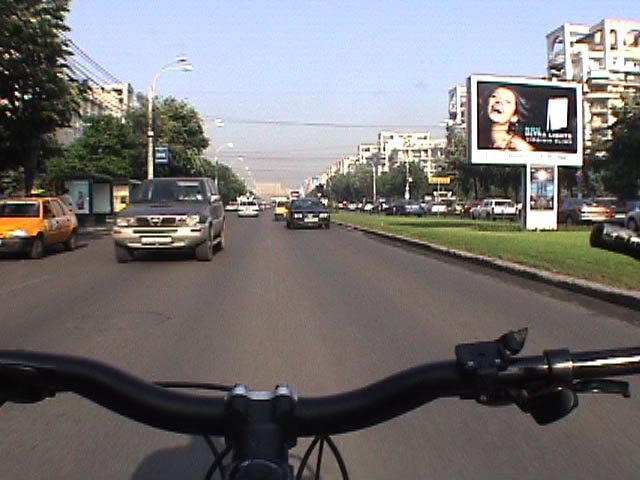
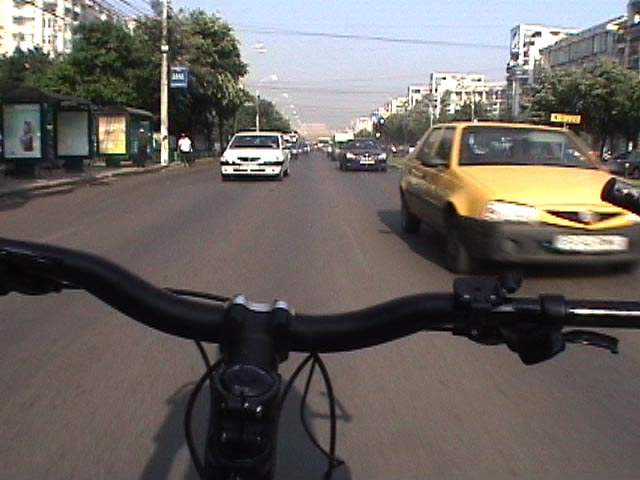
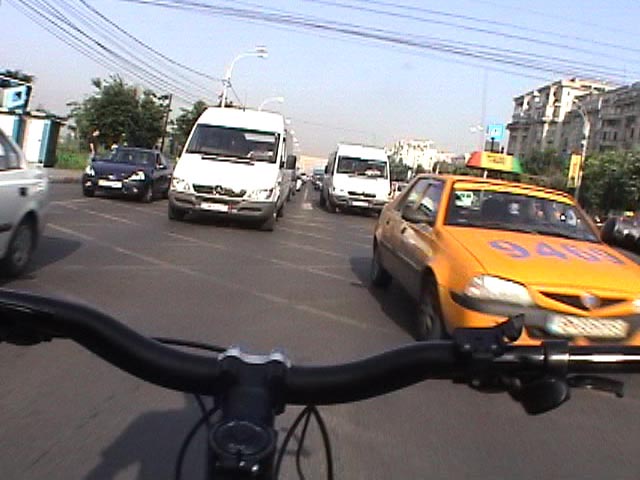
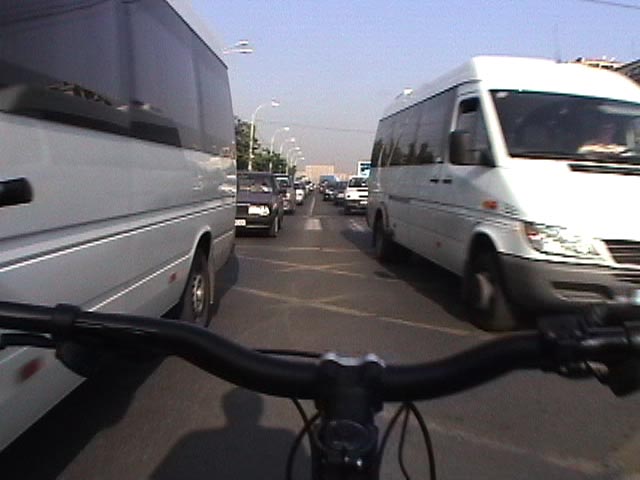
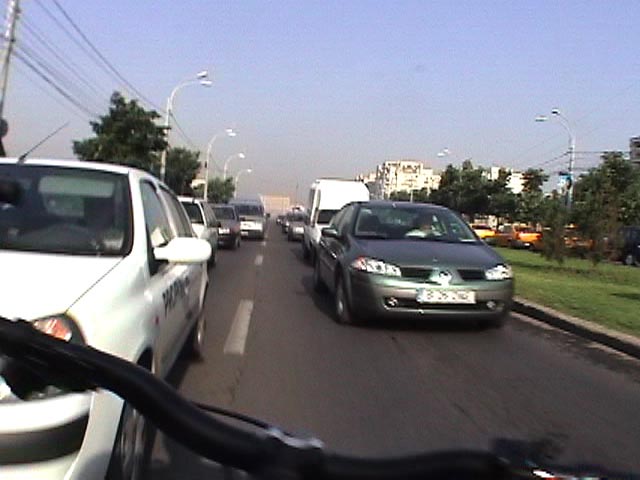
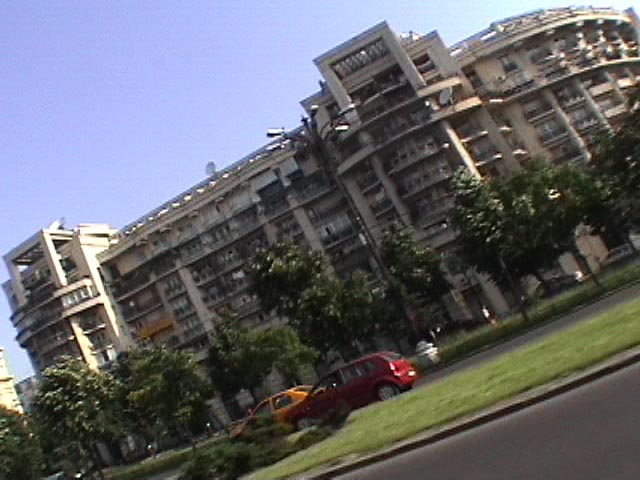
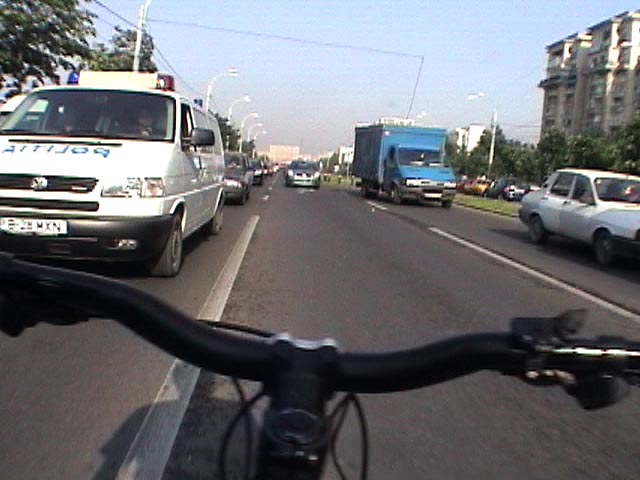
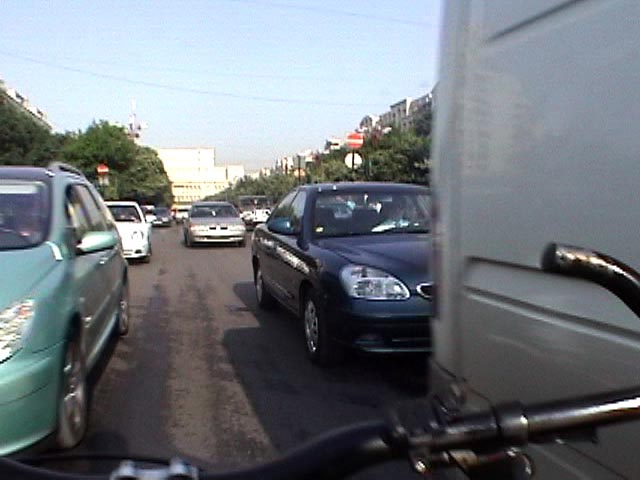
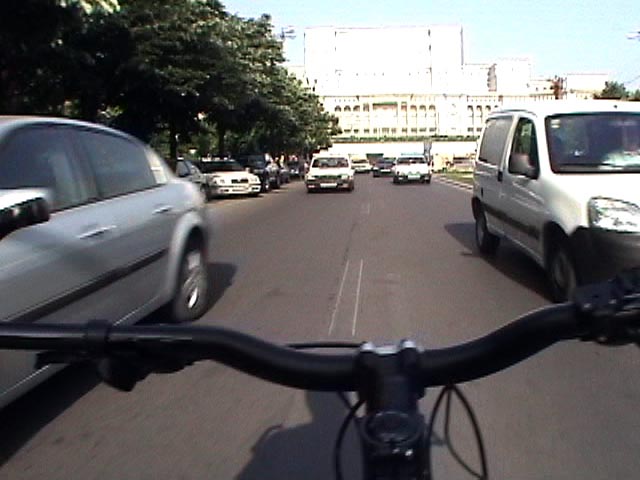
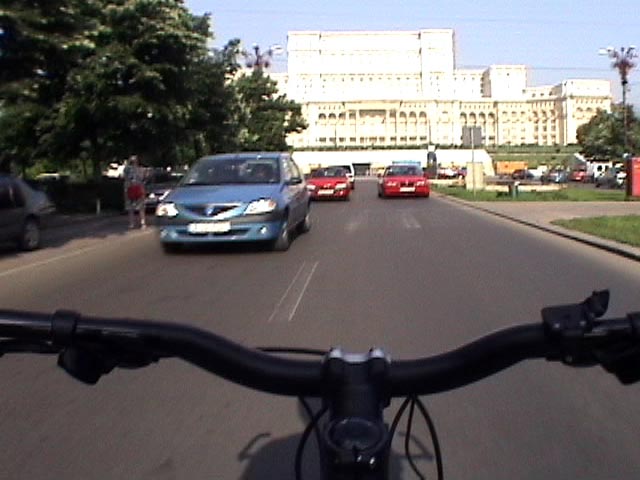
i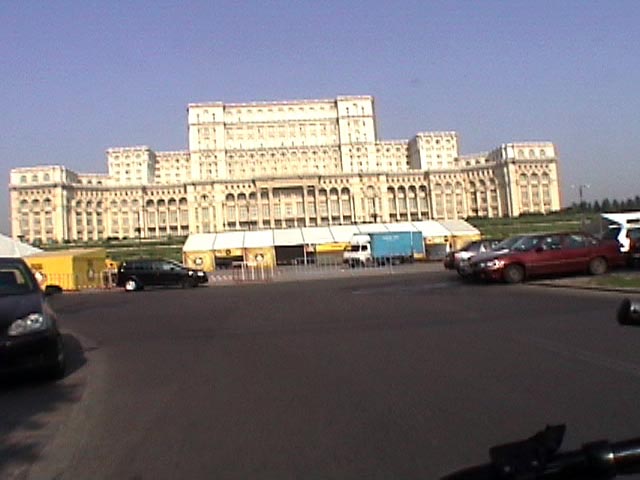
video clip (excerpt) -- 2: 44 min
a word by Gregory Volk on this project form the press release of his group show at Tanja Bonakdar, 2007
"Rainer Ganahl’s video The Apprentice in the Sun shows one of his precarious bicycle rides performed against ferocious city traffic (this time in Bucharest), presented along with a neon work inspired by a Marcel Duchamp drawing with the same title. The Bucharest ride is one in an ongoing series of “performative exercises,” in which Ganahl cycles between two historically and politically significant locations in a metropolis, always against motorized traffic and in an utterly vulnerable position as he is riding free-handed while holding his camera above. Ganahl is like a Tour de France rider who has taken a very wrong turn, or a stuntman who has inexplicably moved from the circus into the city. Going against the grain as a Western visitor in post-Cold War Romania also highlights the prevalence of intercultural misunderstanding in this era, but what’s most alarming (and darkly humorous) is how a simple bicycle trip becomes a life-threatening act. Ganahl’s work also subtly calls for risk-taking and new directions in both an ecological and political sense. "